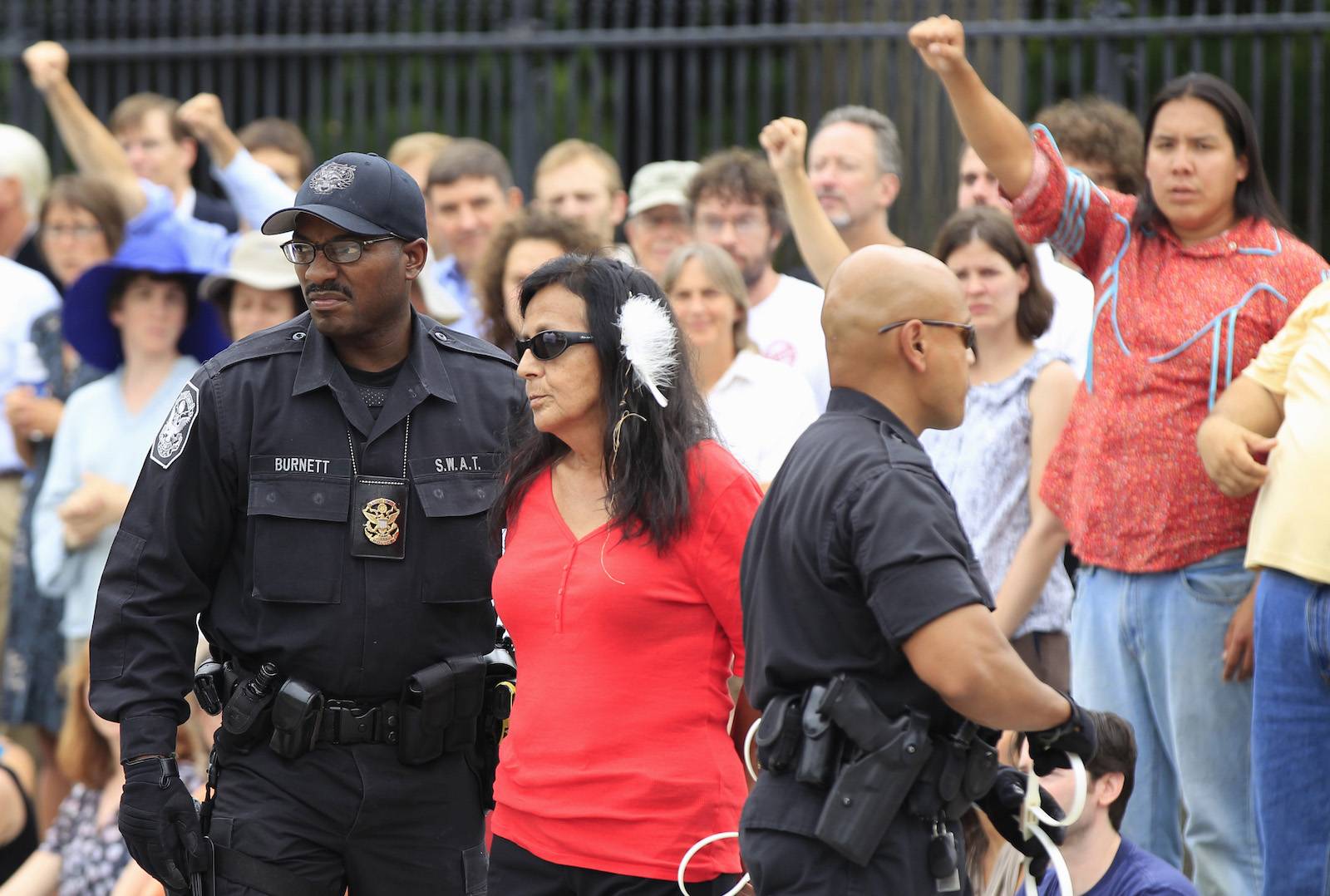How the US government began its decade-long campaign against the anti-pipeline movement

This article was produced in partnership with Type Investigations, where Adam Federman is a reporting fellow.
On the morning of March 5, 2012, Debra White Plume received an urgent phone call. A convoy of large trucks transporting pipeline servicing equipment was attempting to cross the Pine Ridge Reservation near the town of Wanblee, South Dakota. White Plume, a prominent Lakota activist, immediately dropped what she was doing and headed to the site, where, within a few hours, a group of about 75 people from the Pine Ridge Reservation gathered.
More than a dozen cars formed a blockade along one of the roads that runs through the reservation. Plume and other activists were outspoken critics of the proposed Keystone XL pipeline, part of a larger network carrying oil from the tar sands of northern Alberta, Canada, to refineries on …